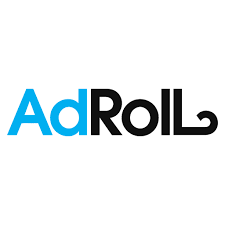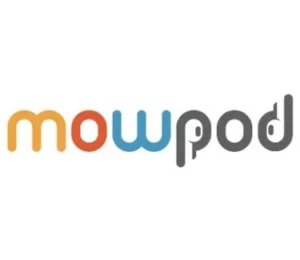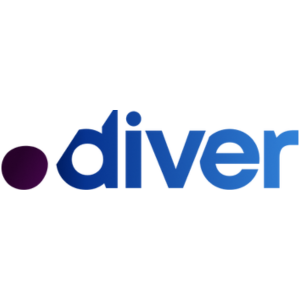LISTEN IN A POD APP
Filters
Jennifer Jones-Mitchell | Human Driven AI
How agencies should use AI– Jennifer Jones-Mitchell // Human Driven AI
Jennifer Jones-Mitchell, Founder and Creator Coach at Human Driven AI, delves into generative AI. When handling multiple brands, agencies need to craft unique content for each. Fortunately, with AI, agencies can create different personas to produce tailored content for each of their brands at scale. Today, Jennifer discusses how marketing agencies should be using AI.
Play PodcastJennifer Jones-Mitchell | Human Driven AI
AI News: GP4, GPTs, & Biden’s Exec Order — Jennifer Jones-Mitchell // Human Driven AI
Jennifer Jones-Mitchell, Founder and Creator Coach at Human Driven AI, delves into generative AI. OpenAI held its first developer event earlier this month, unveiling a host of new features and capabilities within the ChatGPT ecosystem. These include enabling users to create their own GPTs and ChatGPT being trained up to April 2023, presenting an incredible…
Play PodcastChris Savage | Wistia
How to create dynamic, live videos– Chris Savage // Wistia
Chris Savage, CEO of Wistia, talks about the importance of first-party data. The world of content generation has evolved significantly in recent years, businesses are utilizing social media to share engaging images and videos. But live streaming is quickly becoming the norm for marketing programs and allowing businesses to connect with their audience in real-time…
Play PodcastChris Savage | Wistia
Why marketers need to lean into 1st-party data — Chris Savage // Wistia
Chris Savage, CEO of Wistia, talks about the importance of first-party data. In recent years, there has been a significant shift in the marketing landscape, with an increased focus on the use of data to drive strategies. To navigate these changes and remain competitive, it's essential to invest in building your own content and traffic…
Play PodcastFrost Li | Social Chat
What is Interactive marketing? — Frost Li // Social Chat
Frost Li, Founder and CEO of Social Chat, discusses ways to increase sales with live streaming. When customers are shopping in a physical store, the experience is very interactive and allows for customer feedback in real time. Many eCommerce brands have started employing interactive marketing tactics to combine elements of virtual shopping with in-store experiences…
Play PodcastFrost Li | Social Chat
Using Live Streaming to Drive Revenue — Frost Li // Social Chat
Frost Li, Founder and CEO of Social Chat, discusses ways to increase sales with live streaming. Marketing by eCommerce nowadays is more video-driven than it is image-driven, and this has led to an increase in live shopping content. Even a giant like Nike has all their brand ambassadors doing live shows on their products almost…
Play PodcastSteve Ohanians | WebEnertia
Emerging B2B Marketing Trends — Steve Ohanians // WebEnertia
Steve Ohanians, CEO and Co-Founder of WebEnertia, talks about some emerging B2B trends. When it comes to expediting the growth of your B2B site, there are a variety of tools at your disposal. And, for marketers, these tools are proving to be more important than ever as B2B websites have become the number one decision-making…
Play PodcastSteve Ohanians | WebEnertia
Ranking the top Tech websites — Steve Ohanians // WebEnertia
Steve Ohanians, CEO and Co-Founder of WebEnertia, talks about some emerging B2B trends. It’s easy for us to assume that fortune 500 companies have it all figured out when it comes to designing websites that convert well. However, B2B tech websites require that you understand who your customer is and enable them to easily navigate…
Play PodcastChris Savage | Wistia
Social Explosion’s opportunity for marketers — Chris Savage // Wistia
Chris Savage, CEO of Wistia, talks about the importance and usage of video marketing. The number of channels and platforms that marketers upload video content to is exploding. Not only does this give marketers the opportunity to figure out where the content resonates, it only gives them the opportunity to test out what type of…
Play PodcastChris Savage | Wistia
Human-centric B2B content that resonates with your audience — Chris Savage // Wistia
Chris Savage, CEO of Wistia, talks about the importance and usage of video marketing. When you’re approaching content creation for B2B, you must consider what people are looking for. How will your content help them get that promotion, solve a difficult task at work, or help them do a better job of promoting their business?…
Play PodcastAbout Marketing Channel: Brand
What is Branding in Marketing?
Branding is closely tied in with marketing but differs in that branding is about creating a company identity - Marketing concerns how you advertise that identity to target audiences. Branding occurs before marketing, as a company needs naming conventions, a logo and trademarks to create a brand identity to market.
What is a Brand?
A brand is a unique design, logo, trademarks, set of terms or specific features that define a company's services and goods from others. Simply put, it's the way the world perceives a business or company. Defining a brand is integral in marketing, advertising and businesses to generate long-term brand recognition and create market value.
Strong brands are easily identifiable, consistent and possess distinct traits and features that resonate strongly among customers and stakeholders. Some of the most popular brands in business right now are:
- Nike
- Amazon
- Coca-Cola
- Kraft Foods
- Apple
- Netflix
- Honda
- Nintendo
Elements of a Brand
- Name, or naming, conventions for the company, services and products
- Taglines or catchphrases
- Logos, graphics and shapes
- Color palettes
- Songs, sounds or jingles
- Unique tastes of flavors
Branded Naming Conventions and Definitions
- Initialism - Naming conventions based on initials, like IBM, KFC and CNN
- Descriptive - A naming convention that directly describes a product's function, like Bank of America or Hotels.com.
- Foreign language - Foreign brands that are descriptive of their geographical location and manufacturers like Toyota, Honda and Volkswagen.
- Founder's Names - Branded naming conventions that utilize the founder's names, which are commonly found in fashion brands. Examples include Michael Kors and Vera Wang.
- Portmanteaus - Brands that combine multiple words into one, such as Amtrak and Panera.
- Puns - Brands that utilize puns in their names, like Lyft.
What is Brand Identity?
Brand identity is the collection of all marketing elements and designs businesses create to portray the right image to consumers.
Effectively creating a brand identity requires businesses to create their own brand values. Brand values encompass the following:
- Creating a company mission statement.
- Choosing values that drive your company and fulfill your mission.
- Deciding what brand personality your company should adopt.
- Taking a unique brand positioning.
- Determining the brand voice your company communicates in.
Once brand values are determined, design elements will help bring a brand to life. A strong, visual design helps tell a brand's story. Brand design elements like logos, trademarks, packaging, web design and employee apparel t-shirts build and enhance brand recognition.
Characteristics of Successful Brands
- They're highly competitive - Successful brands consistently innovate to stay competitive in markets. They also understand sales aren't the only metric for success.Competitive brands employ large teams to handle every aspect of operations from administrative assistants to C-suite executives who focus on innovating in every sector of the business possible. Successful brands go the extra mile to leave lasting impressions on customers.
- They offer distinctive brand experiences - Memorable brand experiences build trust in customers by delivering unique, high-quality services and products. Memorable, consistent experiences lead customers to identify you with a product or service. When they need to purchase that product again, the business that created memorable experiences for them will first come to mind.
- They're passionate about what they do - Long-term brand success depends on the passion of the people driving it. Passion drove Oprah Winfrey and Steve Jobs to become household names. Possessing a genuine passion for a brand can inspire customers and turn small business owners into an international brand.
- They practice consistency - Although brands rely on innovation to stay competitive, they also need to stay consistent. Popular brand logos might change over time, but they still retain visual elements of their original design that customers can easily identify. A strong brand identity ensures a business stays top-of-mind with audiences.
- They're led by strong leaders - Well-known leaders are vital to brand building and branding strategy. The strongest brands are led by influential leaders who inspire their employees, and audiences, for greatness. Whether a large or small business, the right leader can build trust among customers and drive a company toward longevity.
- They seek exposure - Brands utilize multiple marketing channels to build brand awareness among its target audiences. Companies are able to scale quickly when their advertising strategies use social media, video and experiential marketing to envelop customers in the brand.
Effective Brand Strategies
Successful brand strategies consist of specific, long-term strategy and goals that nurture a company's character and helps it evolve over time. The main attributes of successful strategies answer consumer needs and emotions.
Although logo design, company websites and naming conventions are important to a brand, it's the intangible attributes that customers are drawn to. Here are essential branding strategies companies can use in brand-building processes.
- Have a strong purpose - A defining purpose is crucial for success in a market where consumer confidence is low and budget vigilance is high. A well-defined purpose separates a company from its competitors. Strong vision and mission statements help cultivate public perception of a brand and make stronger impressions on audiences.
- Inspire emotion - Emotional branding that connects with target audiences, and gives them the opportunity to feel like they're part of a larger group, helps campaigns achieve success. Belongingness and the innate human desire to build relationships is a huge part of emotional branding. Hitting the right triggers can strengthen bonds with customers.
- Stay flexible - Although consistency defines the standard for brands, flexibility allows for adjustments to build interest and distinguish brand promises from the competition. Brands with long legacies change to meet the moment, updating the brand image, brand guidelines and improving customer experiences to meet current audience needs.Popular brand Nike evolved over time, but stayed consistent with branding mainstays like its "Just Do It," trademark. The brand message stays consistent with the brand story as marketers continue to innovate the "Just Do It," story.
- Get employees involved - How employees interact with customers is vital to messaging efforts. Portraying a positive, uplifting atmosphere on the company website while employees act disinterested while providing customer service is detrimental to brand building. Aligning messaging company-wide, from content to personal interactions, is an essential brand-building strategy.
- Reward loyalty - When clients and customers engage with and put trust into a company, it's wise to reward them for their dedication. Cultivating client and customer loyalty early on guarantees more returning customers, which boosts profits for businesses. A simple thank you message, personalized letters, discount codes or even free merchandise can boost customer engagement and trust.
- Monitor competitors - Viewing competitors as a challenge to improve brand strategy is a healthy mindset to possess. Watch competitors and the risks they take. Do they pay off? Do they fail?Observing competitor performance can reveal branding opportunities that are unique to your business. Where they may have failed, you can succeed. Take account of what strategies succeeded and what didn't, and formulate a branding strategy that works for you.
What is Personal Branding?
Personal branding functions like corporate branding, except marketing efforts, are focused on the perception of one individual. Individual branding positions one person as an authority in their respective industry, focusing on elevating their credibility to differentiate themselves from the competition.
Personal branding is leveraged by a wide range of professionals from self-help coaches to influencers and politicians. Personal brands utilize the power of social media for brand management and to communicate with target audiences. Personal brands allow for more personal messaging and sole control of brand voice.
Often individuals choose their own name as their company name, operate as small businesses or startups and have descriptive value propositions. Like company branding, sole practitioners utilize logos, use unique packaging, buy unique domain names, taglines and open online stores to reach potential customers and acquire sales.
Personal Brand Building Strategies
- Communicate strengths and passions - Clearly communicating passion is essential for personal brands to experience success. When a leader or influencer is passionate about their work, they naturally pursue success. Potential customers can tell when someone is passionate about their work, and more likely to support someone who loves what they do.
- Set clear objectives - Some sole branding practitioners like to share their hobbies online, while others want to develop entire careers from it. Setting clear objectives reveal what KPIs to set to achieve certain benchmarks. Launching a career requires setting KPIs that accomplish specific brand-building initiatives.Example KPIs that lead to brand growth include measuring social post engagement, website visits, external mentions and time spent on site.
- Become a subject matter expert - Most people building a solo brand are typically subject matter experts in one or multiple professional disciplines and industries. People who've demonstrated they hold extensive knowledge and expertise in a particular industry are effective brand builders.People are more likely to follow brands with an experienced leader behind them. Influencers whose content focuses on reviewing products is another example of SMEs. The more they use various products, the more likely they gain dedicated followers.
- Choose the right social media platforms - Brand content creators concentrate their efforts on social media platforms that meet their content marketing needs. Although one might consider publishing their content on all social platforms, it's best to concentrate on the platforms that suit your content and brand.Testing campaigns across multiple platforms first is key to determine which platforms work best for your brand. The usefulness of certain platforms will change over time, so it's best to make platform testing a routine part of the brand-building process.
- Produce content consistently - Providing a frequent flow of content is key to brand building. It keeps personal brands and small businesses top of mind with consumers. How you present this information, textually or through visual mediums, is important as well.Creating content consistently builds a following, which creates a community that supports your brand. Content creation is a vital aspect of brand marketing and is an essential component to personal, successful brand building.
What is Brand Recall?
The definition of brand recall is when a brand's memorability is so strong in consumers, they're able to instantly recall it from memory to address an immediate need. When a consumer needs a new pair of shoes, they recall brands they're familiar with from memory to speed up decision-making. Strong shoe brands like Nike or Adidas are likely the first brands to spring to mind in customers as they've demonstrated longevity, possess strong value prepositions, and offer high-quality products.
Brand recall is difficult to attain for many brands and is steadily built through digital marketing, brand building, and content marketing efforts. This process is known as marketing-mix modeling. It helps marketers optimize how they leverage marketing budgets to maximize marketing performance and generate a greater impact on brand awareness and sales
Read MoreRead Less
Sponsors of the MarTech Podcast



































